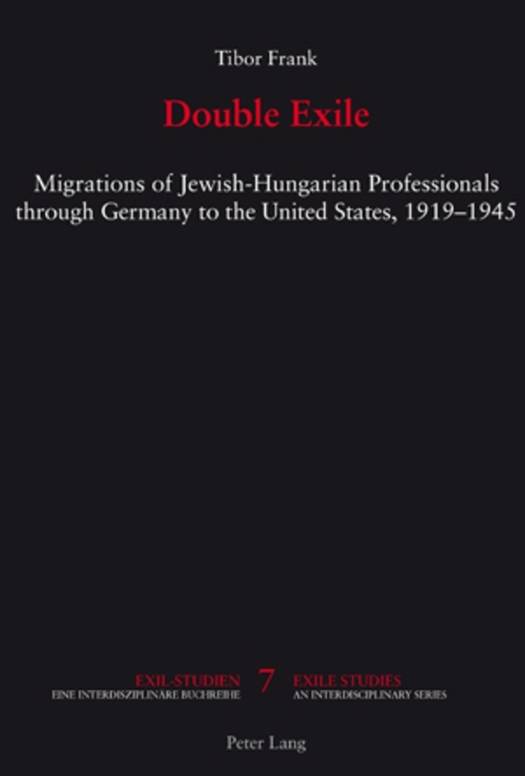
Door een staking bij bpost kan je online bestelling op dit moment iets langer onderweg zijn dan voorzien. Dringend iets nodig? Onze winkels ontvangen jou met open armen!
- Afhalen na 1 uur in een winkel met voorraad
- Gratis thuislevering in België vanaf € 30
- Ruim aanbod met 7 miljoen producten
Door een staking bij bpost kan je online bestelling op dit moment iets langer onderweg zijn dan voorzien. Dringend iets nodig? Onze winkels ontvangen jou met open armen!
- Afhalen na 1 uur in een winkel met voorraad
- Gratis thuislevering in België vanaf € 30
- Ruim aanbod met 7 miljoen producten
Zoeken
Double Exile
Migrations of Jewish-Hungarian Professionals through Germany to the United States, 1919-1945
Tibor Frank
€ 111,45
+ 222 punten
Omschrijving
This is a social history of refugees escaping Hungary after the Bolshevik-type revolution of 1919, the ensuing counterrevolution, and the rise of anti-Semitism. Largely Jewish and German before World War I, the Hungarian middle class was torn by the disastrous war, the partitioning of Hungary in the Treaty of Trianon, and the numerus clausus act XXV in 1920 that seriously curtailed the number of Jews admitted to higher education. Hungary's outstanding future professionals, whether Jewish, Liberal or Socialist, felt compelled to leave the country and head to German-speaking universities in Austria, Czechoslovakia, and Germany. When Hitler came to power, these exiles were to flee again, many on the fringes of the huge German emigration. Emotionally prepared by their earlier threatening experiences in Hungary, they were quick to recognize the need to uproot themselves again. Many fled to the United States where their double exile catalyzed the USA into an active enemy of Nazi Germany and stimulated the transplantation of European modernism into American art and music. To their surprise, the refugees also encountered anti-Semitism in the USA. The book is based on extensive archival work in the USA and Germany.
Specificaties
Betrokkenen
- Auteur(s):
- Uitgeverij:
Inhoud
- Aantal bladzijden:
- 506
- Taal:
- Engels
- Reeks:
- Reeksnummer:
- nr. 7
Eigenschappen
- Productcode (EAN):
- 9783039113316
- Verschijningsdatum:
- 24/04/2009
- Uitvoering:
- Paperback
- Formaat:
- Trade paperback (VS)
- Afmetingen:
- 152 mm x 229 mm
- Gewicht:
- 671 g

Alleen bij Standaard Boekhandel
+ 222 punten op je klantenkaart van Standaard Boekhandel
Beoordelingen
We publiceren alleen reviews die voldoen aan de voorwaarden voor reviews. Bekijk onze voorwaarden voor reviews.











